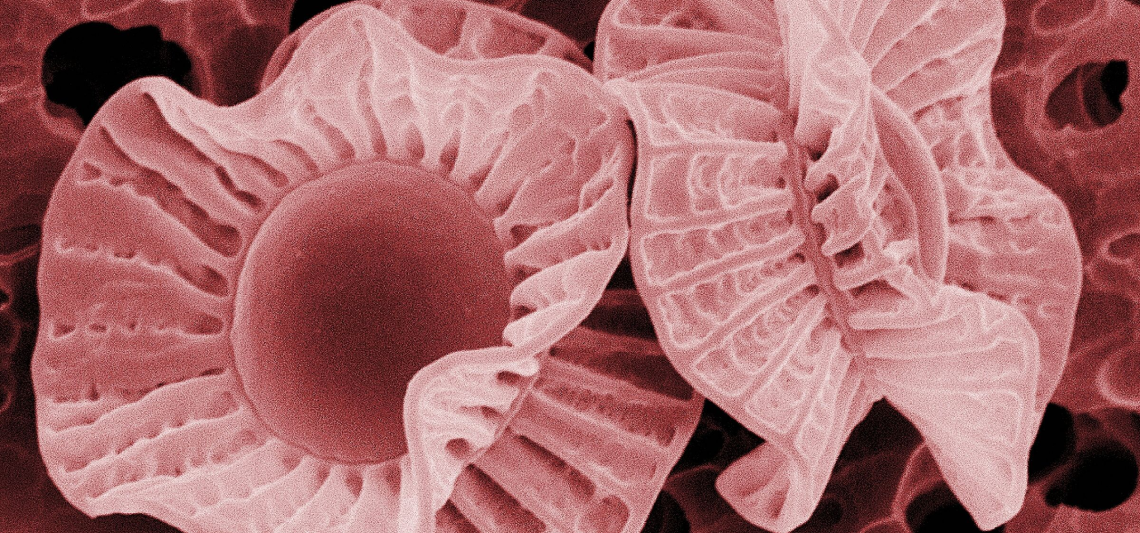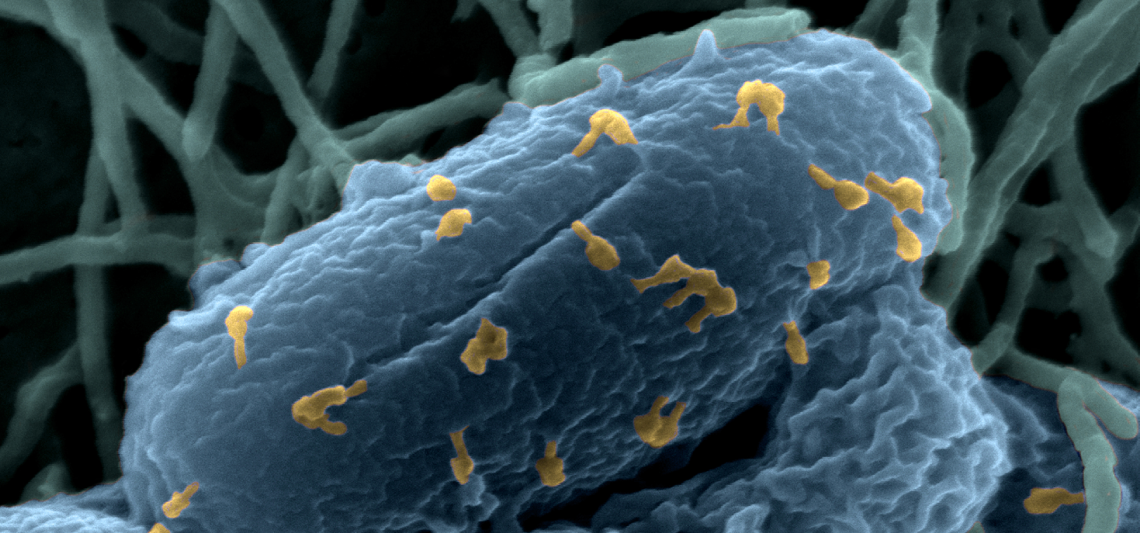

 13/10/2023
13/10/2023(ECCO) and Fondazione CRT, is about to take flight to new destinations. This microbiological literacy initiative, which aims to break down prejudices against microorganisms, is set to cross the Atlantic and land in various Brazilian locations.
Microorganisms, unlike macroscopic life forms, are invisible to the human eye because of their microscopic size, ranging from millionths to thousandths of a millimeter. However, they are ubiquitous, found everywhere in the environment, from the air to fresh and marine waters to the soil. Some of them show amazing resilience, surviving in extreme conditions such as extreme temperatures, high salinity levels, geysers, volcanic craters, ionizing radiation and even in space. Without these microorganisms, life on Earth would simply be impossible.
The photographic exhibition presents real images of microorganisms, captured in laboratories throughout Europe, enlarged thousands of times and printed on large panels (125 x 85 cm). This imposing size allows visitors to be immediately captivated by the beauty of the images while immersing themselves in the underlying scientific explanations. The photographs act as a powerful vehicle for knowledge, offering a window into the microbial world that astonishes with its extraordinary beauty and the ingenuity developed by these organisms over billions of years of evolution.
The exhibition consists of 40 panels divided into 6 thematic sections: viruses, bacteria and archaea, microalgae, yeasts, filamentous fungi and symbioses. This unique exhibit provides a formidable learning opportunity for all visitors, regardless of their scientific background.
What is new about this initiative is its expansion to Brazil. During the institutional mission of the University of Turin held in October 2023, Prof. Giovanna Cristina Varese of the Department of Life Sciences and Systems Biology at the University of Turin received enthusiastic proposals from Brazilian colleagues to create a traveling exhibition in various cities in Brazil.
In Belo Horizonte, colleagues from the Federal University of Minas Gerais proposed to exhibit the exhibit at the Brazilian Congress of Mycology scheduled for February 2024. The Consul of Italy in Belo Horizonte, Nicoletta Gomiero, enthusiastically joined the initiative, proposing a collaboration between the Consulate and Casa FIAT to organize the exhibition in grand style.
The exhibition will then stop in Rio de Janeiro, where it will be set up at the Museu da Vida, part of the excellent Oswaldo Cruz – FIOCRUZ Foundation. The Consulate General of Italy in Rio has also expressed interest in being part of the exhibit, helping to make this initiative even more special.
But the story does not end there. A fortunate meeting led to a connection with the European Institute of Design (IED), which has a presence in Brazil and in different parts of the world. IED conducts research on biomaterials for fashion, graphic, and interior design, and may soon join the exhibition itinerary, bringing a fascinating new approach to the intersection of microbiology and design.
The University of Campinas, UniCamp, and the Consulate General of Italy are also considering joining the initiative, further expanding the reach and impact of this extraordinary traveling exhibition.
The exhibition “Extraordinary Microorganisms – Amazing Microorganisms,” therefore, is positioned as a fascinating example of how science and art can converge to educate the public on complex topics such as microbiology. This initiative demonstrates how the power of images and international cooperation can inspire the public to discover the beauty hidden in the infinitely small.

